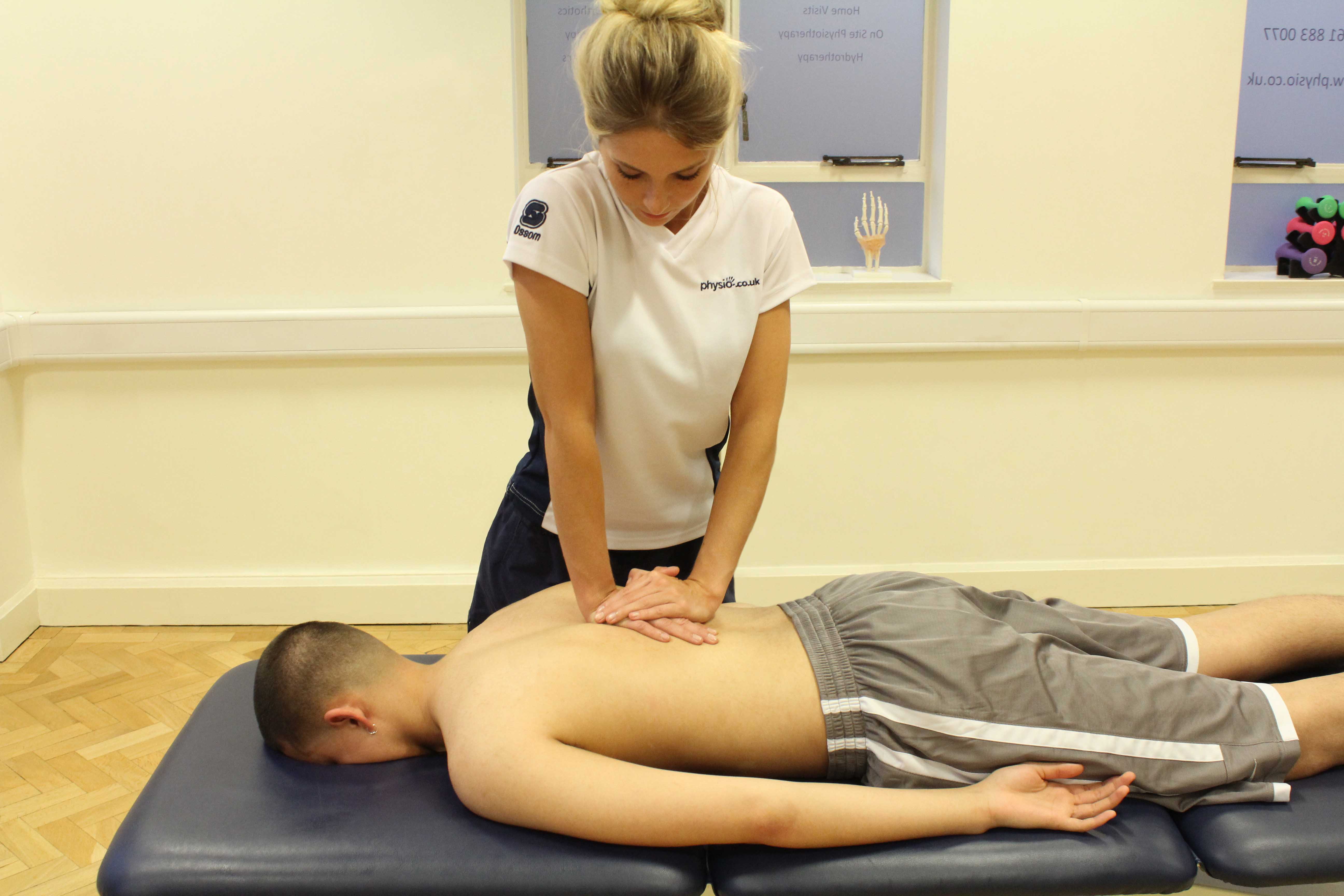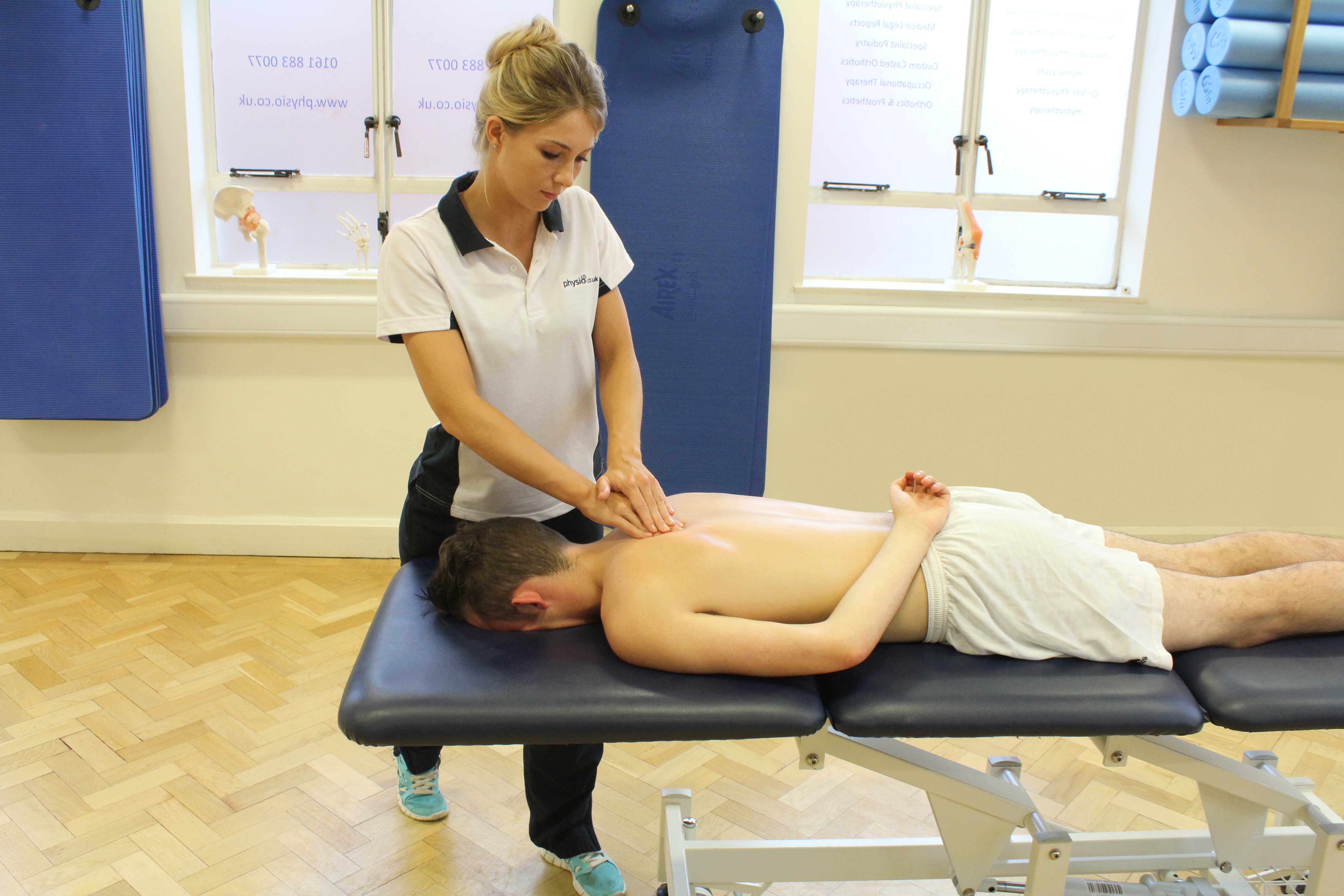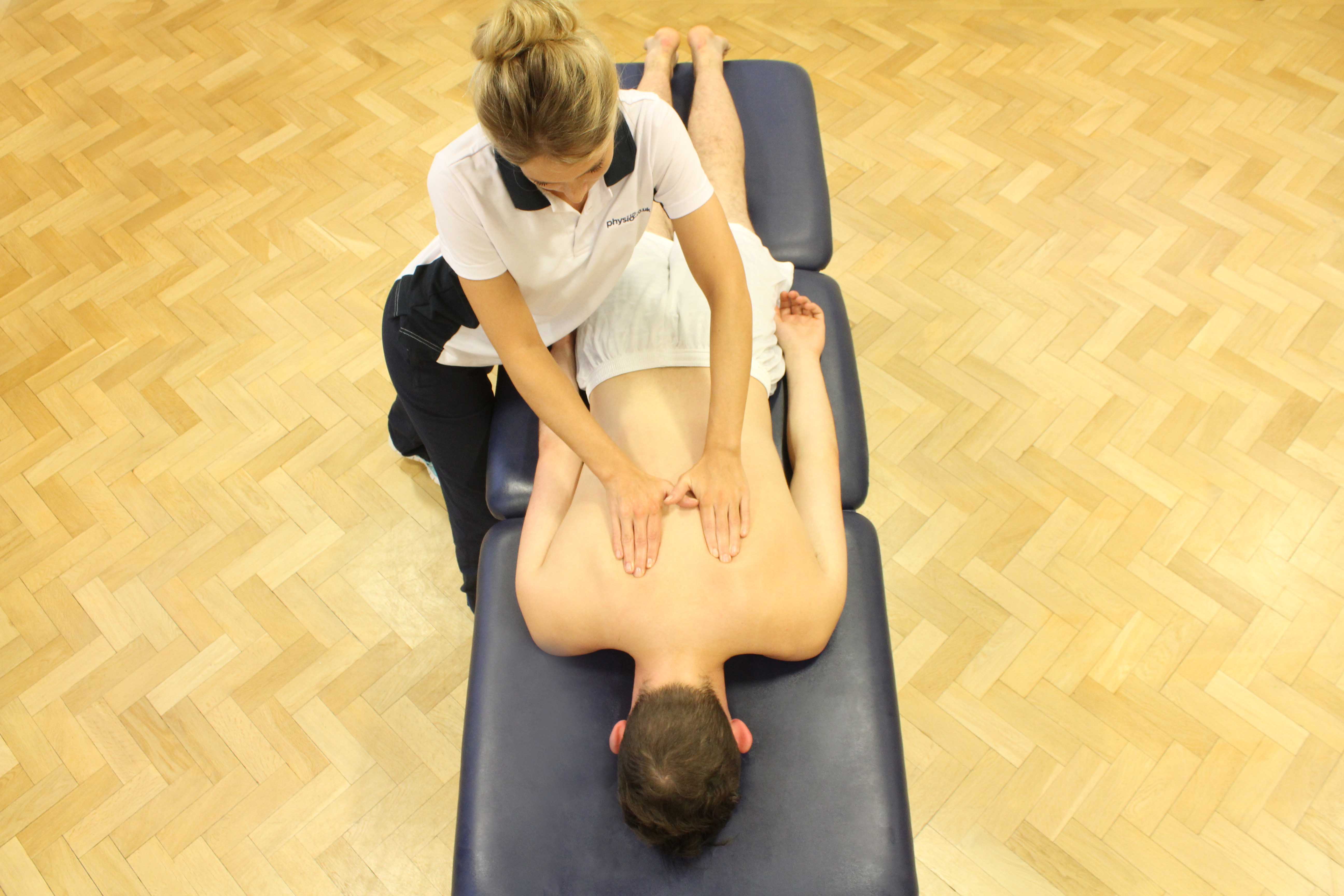What is a thoracic intervertebral disc prolapse?
The bones that make up the spine are called the vertebrae. The disc between each of these vertebrae is called an intervertebral disc. A thoracic intervertebral disc prolapse refers to an injury that causes this disc to bulge outward from between two of the vertebrae in the upper back. Physiotherapy is an excellent treatment for thoracic intervertebral disc prolapse.
 Above: Soft tissue massage of the upper thoracic spine
Above: Soft tissue massage of the upper thoracic spineHow does a thoracic intervertebral disc prolapse happen?
Thoracic intervertebral disc prolapses occur when the disc between two vertebrae in the upper back is injured. This may occur if the disc is compressed or if the trunk is rotated too far. When the disc is injured, it may swell and bulge outwards. This bulge causes symptoms as it compresses nearby structures such as nerves.
What are the symptoms of a thoracic intervertebral disc prolapse?
A thoracic intervertebral disc prolapse causes pain in the middle of the back that is very strong and made worse by movement of the trunk. This pain often radiates or ‘shoots’ around the ribs and abdomen. Additional symptoms may include:
What should I do if I have a thoracic intervertebral disc prolapse?
If you have or suspect you have a thoracic intervertebral disc prolapse, you should consult a physiotherapist for advice and treatment.
 Above: Soft tissue massage of the upper back muscles
Above: Soft tissue massage of the upper back musclesPhysiotherapy treatment for a thoracic intervertebral disc prolapse.
The assistance of a physiotherapist is important in the treatment of a thoracic intervertebral disc prolapse. Your physiotherapist can diagnose your problem and determine its severity. Following your initial assessment a referral for imaging techniques such as X-rays or MRI may be required. From this information, your physiotherapist will develop a treatment plan specific to you. This may involve activity modification, the use of anti-inflammatory medications, electrotherapy treatment, thoracic intervertebral joint mobilisation or stretches.
Other treatments include:
What shouldn’t I do if I have a thoracic intervertebral disc prolapse?
If you have or suspect you have a thoracic intervertebral disc prolapse, you should not ignore it. This may lead to your injury worsening and, therefore, prolong your recovery. You should also avoid activities that aggravate your pain.
 Above: Soft tissue massage of the upper thoracic spine
Above: Soft tissue massage of the upper thoracic spineCould there be any long-term effects from a thoracic intervertebral disc prolapse?
With physiotherapy treatment, thoracic intervertebral disc prolapses usually get better within a number of weeks to months. This may, however, be prolonged depending on the size of the disc bulge.
To arrange a physiotherapy assessment call Physio.co.uk on 0330 088 7800 or book online.

 0330 088 7800
0330 088 7800





































